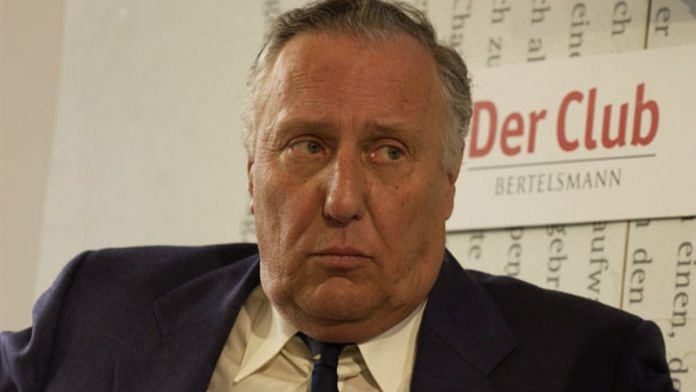Frederick McCarthy Forsyth in Ashford, Kent, on 25 August 1938. With a keen eye for detail and proficiency in multiple languages such as German, French, Spanish, and Russian, he was cut out to be a journalist.
His experience as a foreign correspondent at and fed many of his political thriller novels. That’s how was born – from his coverage of assassination attempts on French President Charles de Gaulle. But it wasn’t all too easy for Forsyth. It took him several attempts to find a publisher for this first novel. Supposedly, people were squeamish about betting on the rolling stone that he was.
Once was out, the world saw Forsyth’s beautiful mind for what it was. And the stars of his life experiences aligned to shape up one of the greats of modern spy fiction writing. As a young man, he flew the de Havilland Vampire for the Royal Air Force and later, admitted to having worked with British for about two decades. When his career as a well-connected and widely travelled journalist began to fade following a disagreement with , he began plotting novels.
The beauty of Forsyth’s writing lay in the vast knowledge he absorbed over the years. From breaking someone’s neck in one swift move to acquiring multiple fake identities and finding illegal weapons in shady alleys–Forsyth’s books were filled with rich details he had acquired from fellow spies and deadly mercenaries with fluid morals. As he once put it: “I know there are danger freaks, and I am emphatically not one. But even as a boy, I had an unusually large bump of curiosity. If I see a lid, I have to lift it. If I see a closed box, I want to open it and find out what’s inside. This is good if you want to be a writer.”
While is hugely popular even today, the world continues to celebrate Forsyth’s other works – , and to name a few.
is about undetected Nazi war criminals spilling out of a Holocaust survivor’s diary; details just how bloody and tumultuous African regime changes can be, while begins with the abduction of the American President’s son. Eat that, Ethan Hunt (though, Forsyth would only have praise for Tom Cruise’s ostensibly last movie).
One of my personal favourites, however, is his lesser-praised novel, . The moral ambiguity of the book sucks you in and leaves you asking questions to yourself for days, making you just a little uneasy for having sympathised with a semi-bad character. The novel appealed to that grey area between the good and bad in people’s minds, along with their grey matter. The reality of the world often sits between bad and “kinda” bad people, and Forsyth exploited that with his lyrical prose and emotional drama. That’s the reason why the action-adventure game series (later turned into a TV series) has gained insurmountable popularity across the world. At its core, too, lies the haunting characteristic of moral ambiguity. Just like a Forsyth novel.
Forsyth taught me many things. One of the most striking lessons was that there is no such thing as collective guilt. It’s always individual; just like salvation. I often defile my books with pencil marks to highlight sentences and paragraphs that could later help me speed-read a book. Lines from remain marked in my copy of the book, which lies in my childhood home next to an Alistair MacLean novel that I borrowed from my uncle’s collection, but never returned.
I learned a lot from my uncle, and it affected me deeply when he left us at the vital age of 47. Forsyth, too, has taught me a lot. And today, his death feels just a little bit personal.
(Edited by Zoya Bhatti)








